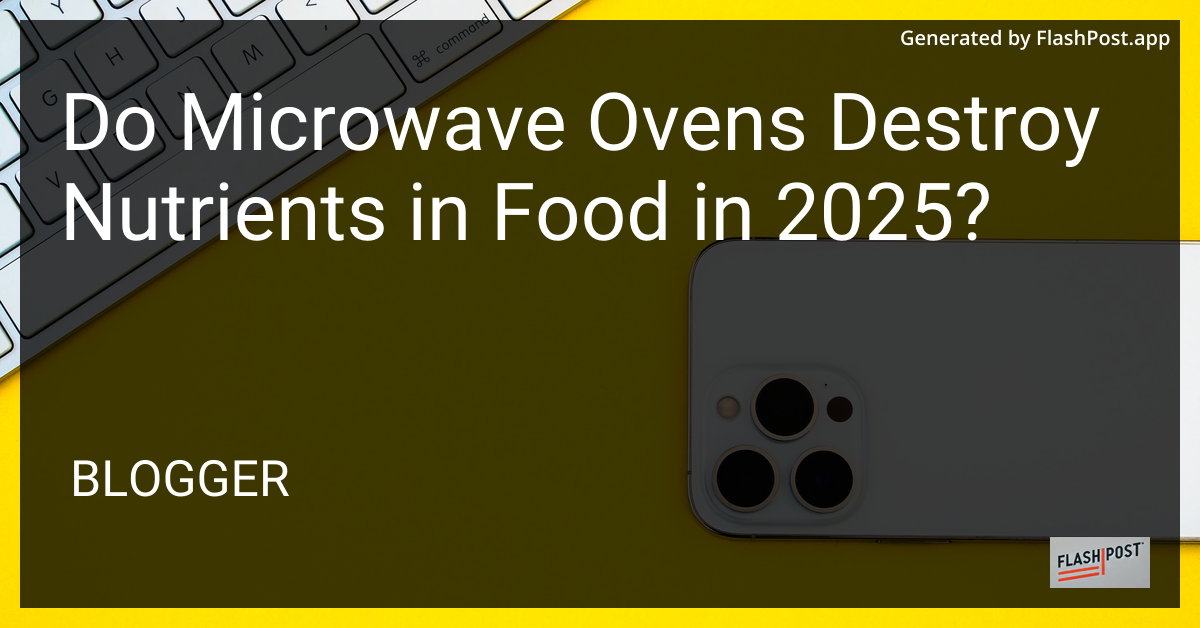Do Microwave Ovens Destroy Nutrients in Food in 2025?

Do Microwave Ovens Destroy Nutrients in Food in 2025?
In recent years, microwave ovens have become an essential part of modern kitchens. They offer quick and convenient food heating solutions, but many people wonder if they compromise the nutritional content of food. As we look ahead to 2025, questions persist about the impact of microwave ovens on nutrient retention in food. In this article, we explore scientific insights into whether microwaving truly destroys nutrients.
Understanding How Microwaves Work
Microwave ovens cook food using electromagnetic radiation, which causes water molecules in the food to vibrate and produce heat. This method is efficient and allows for fast cooking times. For those curious about microwave operations, you might want to learn about the differences between solo and grill microwaves.
Nutrient Retention in Microwave Cooking
Some Nutrients Are Heat-Sensitive
When it comes to nutrient preservation, heat-sensitive vitamins like vitamin C and certain B vitamins are prone to degradation when exposed to high temperatures. However, microwaving typically subjects food to shorter cooking times compared to conventional methods, which can actually help preserve more nutrients.
Comparative Studies on Cooking Methods
Studies have shown that microwaving can preserve nutrient content better than boiling, where nutrients leach into the water. For example, a study on vegetables found that microwaving retained higher levels of vitamin C compared to boiling.
Factors Influencing Nutrient Preservation
Several factors affect how well nutrients are preserved during microwave cooking. These include:
- Cooking Time: Shorter cooking times typically result in better nutrient retention.
- Food Composition: The water content and density of the food can influence nutrient retention.
- Microwave Power Levels: Adjusting power levels may help maintain nutritional integrity by avoiding “overcooking.” To understand more about microwave power, visit this typical microwave power usage guide.
Practical Tips for Preserving Nutrients
- Cut Uniformly: Cutting food into uniform pieces ensures even cooking and minimizes nutrient loss.
- Use Minimal Water: When steaming or microwaving vegetables, using less water can help preserve water-soluble vitamins.
- Cover Food: Covering food while microwaving retains moisture and heats more evenly, protecting vulnerable nutrients.
Looking Ahead to 2025
As technology advances, so do microwave ovens. The innovations expected in 2025 focus on efficiency and even cooking, which can further enhance nutrient retention. Modern designs aim to optimize cooking methods, promoting healthier dietary options. For insights on appliance longevity, consider checking out the average microwave lifespan in 2025.
Conclusion
While no cooking method is perfect, microwave ovens can be an effective tool for retaining nutrients when used correctly. It’s all about managing cooking times, power levels, and techniques to improve outcomes. As we move into 2025, embracing advancements in microwave technology could support our health goals more effectively.
By understanding these aspects, you can make the most of your microwave while ensuring your meals remain nutritious.
Comments
Post a Comment